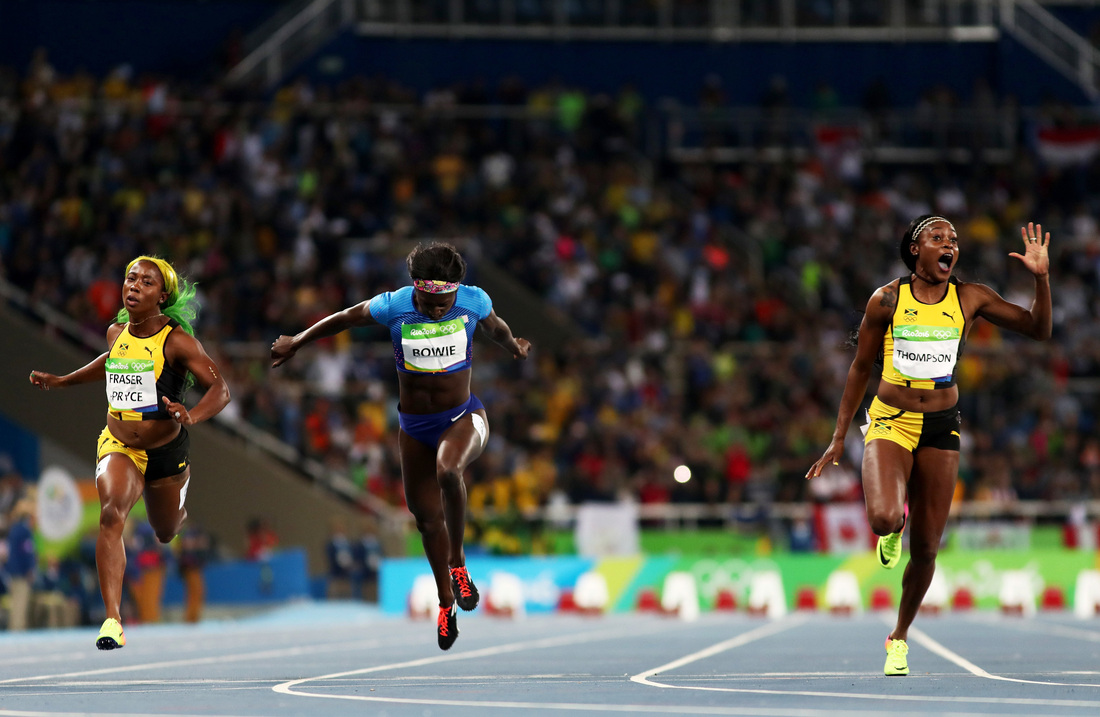Phelps Run Of Golds In Rio Ends With Stunning Loss

The 2016 Rio Olympics marked an illustrious chapter in the annals of sports history, primarily due to the extraordinary feats of Michael Phelps. The swimmer, often heralded as the greatest Olympian of all time, concluded his career in a grand spectacle that captivated audiences worldwide. However, amidst the accolades and celebrations of glory, Phelps's journey culminated not with unmitigated triumph, but rather with an unexpected and stunning loss that sent ripples throughout the sporting community.
Phelps entered the Rio Games with the weight of expectations heavier than ever. Having amassed an astounding 23 gold medals over his previous Olympic ventures, the swimmer was not only a veteran in the pool but also a symbol of resilience and excellence. Competing in his final Olympics, fans and analysts alike anticipated a seemingly inconceivable climax to his career—a sweep of golds once again. However, fate often plays unpredictable games, and Phelps's narrative in Rio took a surprising twist.
In the men's 100m butterfly, Phelps was favored to emerge victorious. The atmosphere was electric—spectators packed the Aquatics Stadium, holding their breath as the athletes took their marks. Phelps, with the finesse of a seasoned champion, dove into the water, showcasing the flawless technique that had earned him unparalleled success. Yet, despite his undeniable prowess, he faced formidable competition in the form of South Africa's Chad le Clos and Singapore's Joseph Schooling.
The race unfolded with a striking intensity. Phelps surged through the water, his strokes powerful and rhythmic, yet the race's finale revealed an unforeseen reality. As the swimmers approached the final touch, it became evident that Schooling had unleashed a latent speed that surpassed the expectations of many. The final moments were tense, a veritable struggle not merely for gold, but for Phelps’s legacy. When the results flashed on the scoreboard, an eerie silence transformed into disbelief—Phelps had finished fourth, marking a profound and jarring conclusion to his illustrious Olympic journey.
This loss was more than about not clinching a medal; it represented a challenging introspection for Phelps and his legion of admirers. Questions arose regarding the implications of his defeat. Had Father Time finally caught up with the swimmer as relentless as ever? Was the pressure of retiring without a last taste of gold too great? These contemplations invited a richer dialogue about the nature of competition and the human experience itself.
In the wake of the stunning outcome, Phelps displayed an admirable composure that many found inspirational. The swimmer embraced his defeat with grace, offering candid reflections on his career. He articulated that the essence of competition transcends mere victories or medals. For Phelps, it was the journey—the sacrifices made, the struggles faced, and the relationships forged—that held the most profound significance. He further emphasized that defeat should not define an athlete but rather serves as a catalyst for growth and resilience.
Additionally, Phelps's performance throughout the Rio Games was characterized by other memorable moments, overshadowed by the 100m butterfly disappointment. He continued to deliver outstanding performances in subsequent events, culminating in his participation in the men's 200m individual medley, where he captured gold. This win encapsulated not just a physical triumph but a testament to his mental fortitude. Each stroke executed in the water resonated with a lifetime of dedication, fortifying his indelible imprint in the swimming world.
Phelps's extraordinary career trajectory includes his encounters with prominent competitors, including the Jamaican sprinting sensation Usain Bolt. The juxtaposition between Phelps's swimming legacy and Bolt's domination on the track enriched the narrative of the Rio Olympics, showcasing two athletes at the pinnacle of their crafts—each with their unique journeys and struggles. As Phelps bid adieu to competitive swimming, Bolt simultaneously reaffirmed his status as the fastest man on earth, further lighting the competitive fires of the Games.
The impact of Phelps's illustrious career reverberates beyond his medals. His willingness to openly discuss mental health issues has spawned a vital discourse in athletics, encouraging emerging athletes to address the psychological pressures tied to highly competitive environments. Phelps's vulnerability shared a platform where discussions about mental wellness transitioned from whispers to resounding proclamations, illustrating that the burden of greatness often comes with immense psychological strains.
Ultimately, while Phelps's stingingly poignant fourth-place finish in the butterfly remains a bitter memory, it does not diminish his legacy. His conclusive performance in the 200m individual medley showcased a swimmer who, despite the looming shadow of loss, raced forth with passion, embodying the indomitable spirit of competition. For sports enthusiasts around the globe, particularly budding athletes, Phelps's journey elucidates an irrefutable truth: the pursuit of greatness is less about the accolades and more about the resolve to rise again amidst defeat.
As the Olympic flame wanes, the lessons gleaned from Michael Phelps's career will continue to shine bright, inspiring generations of athletes to push their boundaries, confront challenges, and embrace every facet of their journeys, both triumphant and tumultuous. In the grand mosaic of the Olympics, moments of loss and glory weave together, forming the tapestry of sportsmanship that captivates hearts for generations.
Post a Comment